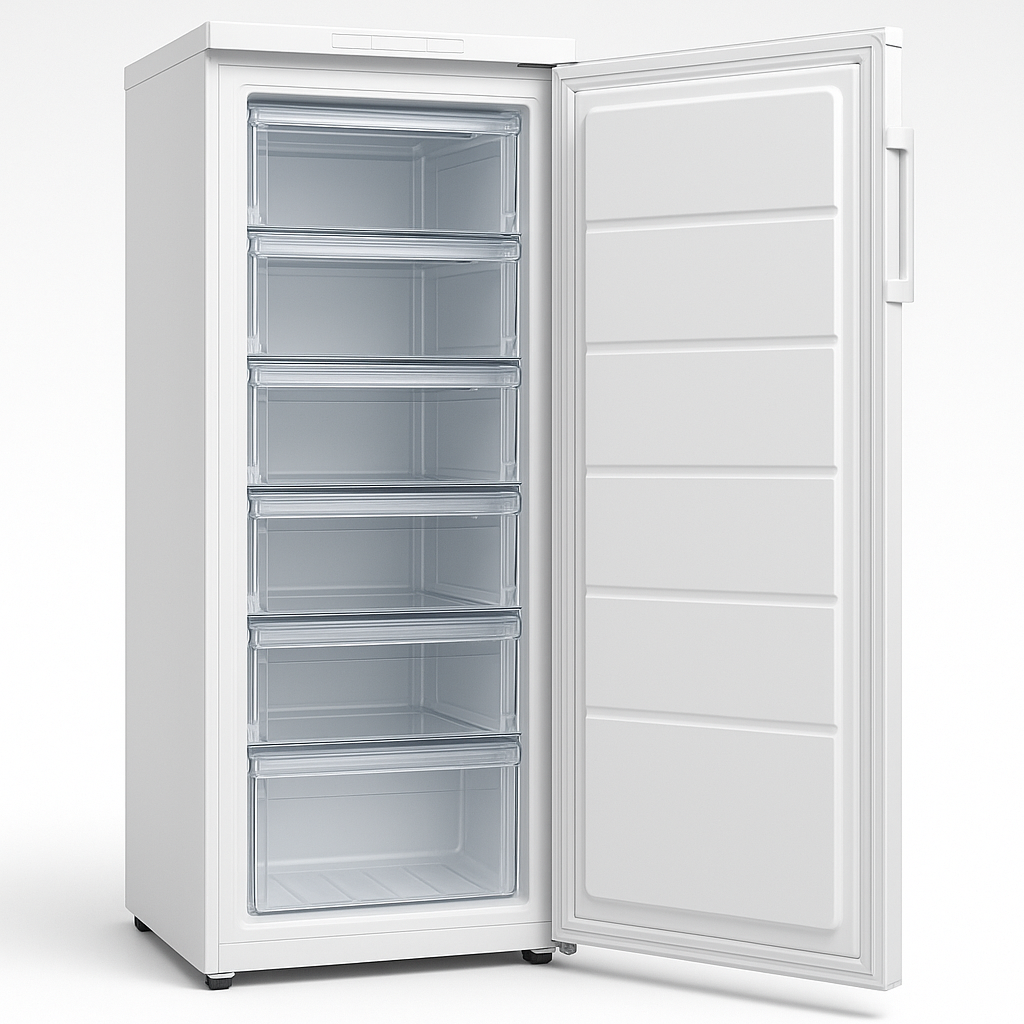5 Lessons You Can Learn From No-Frost Freezer Offer

The Advantages of No-Frost Freezers: Say Goodbye to Manual Defrosting
When it pertains to kitchen area appliances, the freezer plays an important function in our daily lives. Freezing food not only helps protect it for longer periods but also conserves money by reducing food waste. However, conventional freezers often need laborious manual defrosting, which can be both bothersome and time-consuming. This is where no-frost freezers enter into play, revolutionizing how we keep food. In this post, we will explore the benefits of no-frost freezers, their functions, and why they are becoming increasingly popular in households around the world.
What is a No-Frost Freezer?
A no-frost freezer, also referred to as a frost-free freezer, is designed to eliminate the accumulation of frost and ice. Unlike standard freezers, which can build up frost due to humidity and low temperatures, no-frost freezers employ a ventilation system that keeps a consistent airflow. This prevents wetness from condensing and freezing, ensuring that your food remains fresh without the hassle of regular defrosting.
Secret Features of No-Frost Freezers
| Function | Description |
|---|---|
| Frost-Free Technology | Usage of forced air circulation to avoid frost buildup |
| Automatic Defrost Cycle | Cycle that occasionally dissolves collected frost and drains it |
| Temperature level Consistency | Even temperature level circulation for ideal food preservation |
| Energy Efficiency | Normally more energy effective due to modern-day insulation methods |
| User-Friendly Design | Adjustable racks and compartments for simple organization |
| Smart Technology | Some models offer Wi-Fi connection for remote monitoring and signals |
Advantages of No-Frost Freezers
- Convenience: The most visible advantage is the removal of manual defrosting. Consumers can take pleasure in problem-free storage without fretting about frosting issues.
- Improved Food Preservation: As no-frost technology keeps an even temperature level, it assists to protect the quality and flavor of food better than conventional freezers.
- Area Optimization: No frost indicates more functional area. Without ice accumulation, users can keep more products without the concern of frozen foods being mismanaged or lost in frost.
- Energy Efficiency: Many no-frost freezers featured improved insulation and energy-efficient systems, ultimately leading to cost savings on energy expenses.
- Relieve of Maintenance: With no ice to scrape away or melting water to clean up, maintenance ends up being much easier, conserving both time and effort.
Comparison of No-Frost Freezers vs. Traditional Freezers
| Feature | No-Frost Freezers | Standard Freezers |
|---|---|---|
| Thawing | Automatic, no manual effort required | Manual, lengthy |
| Ice Buildup | None, thanks to airflow innovation | Frequent ice accumulation |
| Space Utilization | More effectively organized | Limited by frost accumulation |
| Temperature level Control | Constant throughout | May vary, particularly near frost |
| Energy Consumption | Normally lower, more effective | Usually greater in time |
Is a No-Frost Freezer Right for You?
While many families take advantage of the convenience and efficiency of no-frost freezers, it's vital to consider individual requirements. Below are some aspects to believe about when choosing if a no-frost freezer is the best choice:
- Frequency of Use: If you often freeze large amounts of food, a no-frost model might be better due to its greater storage capacity and ease of gain access to.
- Budget plan: No-frost freezers can in some cases be more expensive upfront. However, think about the long-lasting savings on energy costs and the avoidance of food waste due to wasting.
- Available Space: Ensure that your kitchen can accommodate the bigger size and ventilation requirements of some no-frost designs.
Regularly Asked Questions (FAQs)
Q1: How does a no-frost freezer work? Einbau Gefrierschrank Kaufen : No-frost freezers make use of a fan to distribute cold air within the freezer, preventing wetness from settling and creating frost. This air flow keeps the temperature level consistent and gets rid of the need for thawing. Q2: How frequently do I need to thaw a no-frost
freezer?A: No-frost freezers do not need manual defrosting; they automatically avoid frost accumulation. However, regular cleansing is still recommended. Q3: Are no-frost freezers more energy-efficient than frost-free freezers?A: Generally, yes.
Modern no-frost freezers are designed with efficient insulation and cooling systems, resulting in lower energy intake with time. Q4: Can I save any type of food in a no-frost freezer?A: Yes, no-frost freezers appropriate for different types of food,
consisting of meat, vegetables, and pre-cooked meals. Ensure items are appropriately packaged to preserve freshness. Q5: Will a no-frost freezer conserve me cash in the long run?A: While the preliminary expense may be greater, the long-term energy cost savings and decrease in food waste often make no-frost freezers a beneficial investment. No-frost freezers represent a significant leap in freezer innovation, offering many benefits, including benefit, efficiency, and enhanced food preservation. With the removal of manual
defrosting, users can invest less time keeping their freezer and more time enjoying the preserved food. As energy efficiency becomes significantly essential in today's eco-conscious world, selecting a no-frost freezer might also be a sensible financial choice. For anyone wanting to upgrade their cooking area appliances, a no-frost freezer is definitely worth considering. Purchasing a no-frost freezer not only simplifies food storage however also enhances the overall culinary experience.

